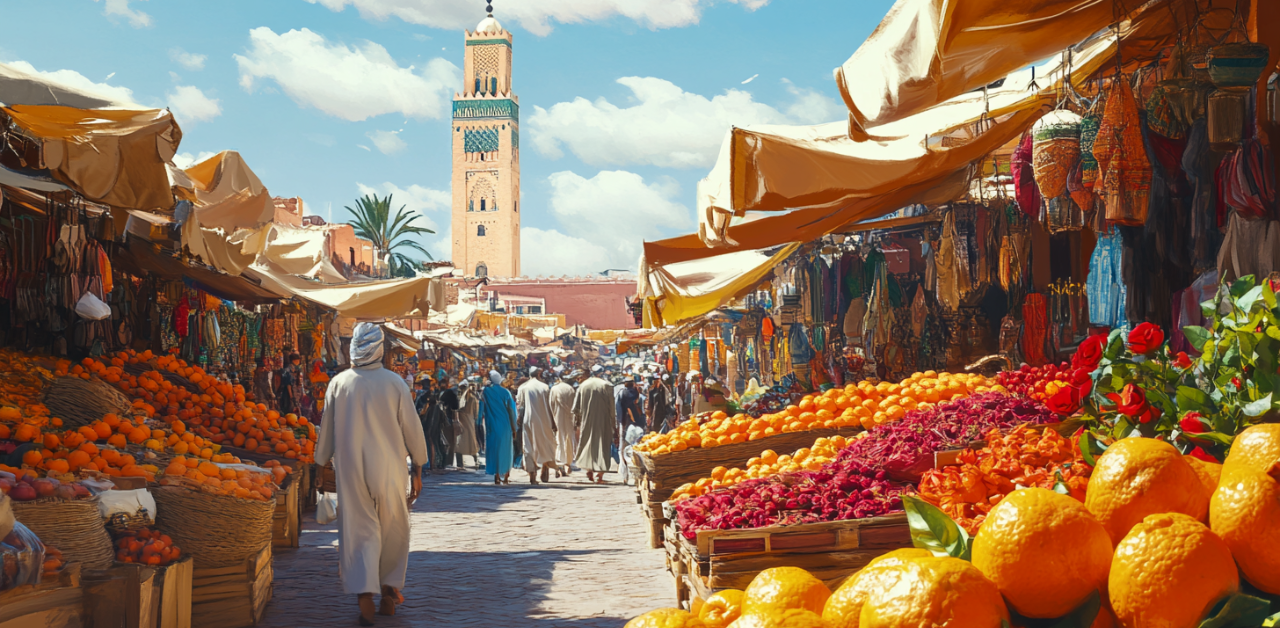Perfumes are an integral part of people’s lives all over the world, and their importance extends beyond adding a pleasant scent, but also extends to many cultural customs and traditions that give their use a social and spiritual dimension. Laudi Plus , the inspired perfume store, is one of the leading brands that has distinguished itself with its deep understanding of perfume culture and its wide influence on different peoples. In this article, we will explore how perfumes are used in different cultures around the world, and the unique traditions that have developed around them.
Perfumes in the Middle East
It is impossible to talk about perfumes without mentioning the Middle East, where perfumes are an essential part of daily life and culture. Arabs have been known to use oud, musk and ambergris for centuries, and these ingredients are used in many social and religious rituals. In countries like Saudi Arabia and the UAE, oud burning is a traditional custom used to perfume clothes and homes, especially on special occasions like weddings and holidays.
Perfumes in Europe
Europe has a long and rich history in perfumery, especially in countries such as France and Italy. France, and especially the city of Grasse, is considered the perfume capital of the world, producing some of the finest and most famous perfumes in the world. In European cultures, perfume is considered part of personal identity and is seen as a means of self-expression. Perfumes are used in everyday life as well as on special occasions, with many preferring luxurious perfumes with floral or woody scents.
Perfumes in Asia
The use of perfume in Asia varies greatly between different countries. In India, perfume has been used for thousands of years, especially in religious rituals and ceremonies. Essential oils of rose, jasmine, and sandalwood are an important part of Indian rituals. In Japan, perfume is used less in everyday life, but there is an ancient tradition known as kodo, or the “way of incense,” the art of smelling and appreciating incense, which is part of traditional Japanese culture.

Perfumes in Africa
Africa has a natural wealth of aromatic plants that are used in traditional perfumery. In North Africa, especially in Morocco and Egypt, perfumes made from flowers such as rose, jasmine and lavender are used in everyday life. These perfumes are considered part of the cultural heritage and are used in social and religious occasions. In some African tribes, perfume is used as a means of communicating with spirits and ancestors during spiritual rituals.
Read also:
- Secrets of natural hair perfumes!!
- Exploring the sources of musk and its various extraction processes -
- A Journey into the History and Cultures of Incense Burners Around the World
Perfumes in Latin America
In Latin America, perfumes are widely used in religious rituals and cultural celebrations. In Brazil, for example, perfume is worn on a daily basis to promote personal hygiene and freshness. Brazilian women prefer floral and tropical fruity scents. In Mexico, perfumes are used in religious celebrations such as the Day of the Dead, where scents are part of the ritual to commemorate the dead.

Perfumes in North America
In the United States and Canada, the use of perfume is a part of everyday life and popular culture. Tastes vary widely, with some preferring light, fresh scents, while others prefer warm, complex scents. Perfumes are part of a daily personal care routine, and are also used on special occasions to enhance elegance and appeal.
The impact of globalization on the use of perfumes
With the increasing globalization and interculturalization, the use of fragrances has become more diverse and interchangeable between different cultures. Global brands like Perfume Plus contribute to the transfer of fragrance customs and traditions from one culture to another, creating a rich diversity in the world of fragrances. Oriental fragrances can now be found in Europe, and Western fragrances in Asia, enhancing our understanding and appreciation of different cultures.
Perfumes reflect a part of the identity and culture of every society, and are a means of self-expression and celebration of special occasions. By exploring the customs and traditions of perfume use around the world, we can understand how perfumes impact our lives and how they embody a part of our cultural heritage. Perfume Plus is a great example of how perfumes can be a bridge between different cultures, enhancing mutual understanding and appreciation between peoples.

